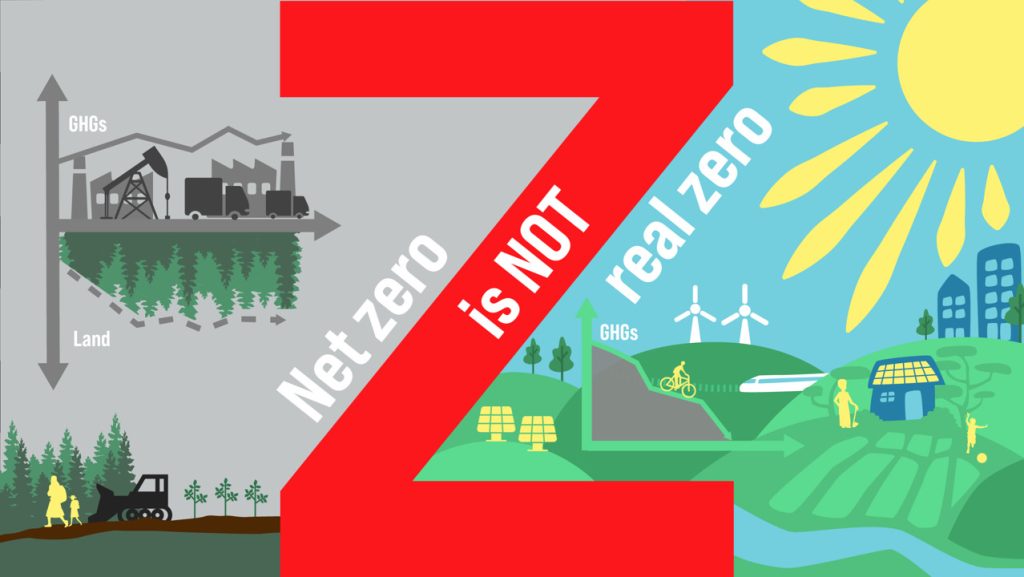Net-Zero is one of those terms that makes climate action seem more complicated than it is. It’s the type of term that is vaguely scientific, and makes people feel good and then move on. But that’s not what’s needed. No one wants to argue with science – we believe scientists! But net zero is not zero, and it’s not simply a scientific term. There are a host of political decisions made in any net-zero pledge, ones that people can and should have a lot to say about.
Net zero, at its most simple, is a balance of “sinks and sources” or a balance between emissions and removals. For everything going up, an equal amount must be coming down. This is a scientific reality on a living planet where absolute zero is impossible and not desirable. IPCC scenarios, mapping out possible pathways for climate action, typically give a date for when the world must meet net zero. This has launched net zero into the public view. This is, however, an incomplete picture of both net zero and what the IPCC says.

The problem with the scientific definition of net zero is that it’s broad. Net-zero can mean everything from a small number of residual emissions balanced out by protected and restored ecosystems or plans for ongoing fossil fuel emissions offset or netted out by either technology or land-based removals. The latter is a huge problem since overreliance on land and risky, unproven technology-based removals are dangerous for communities and likely won’t deliver as many removals as promised. It’s then too late to “undo” those emissions.
Overwhelmingly, net-zero pledges thus far have relied far too heavily on offsets and netting out. There haven’t been nearly enough policies or plans put in place for the needed just and equitable fossil fuel phase-out. So when you hear net-zero terminology, that’s the time to really pay attention and demand details instead of assuming real ambition behind the rhetoric.
Here are some resources to help get you started:
- Report: Net-Washed: How a Rubric for Real Zero can solve the problem of Net-Zero Greenwashing
- Comic: The Scam of Carbon Offsets in ‘Net Zero’ Climate Targets
- ActionAid’s response to HLEG release
- Not Zero: How ‘net zero’ targets disguise climate inaction – A Joint Technical Briefing by climate justice organizations
- Not-their-lands: The land impact of Royal Dutch Shell’s net zero climate target (Case Study on Shell’s net zero climate target)
- How to Read A Net Zero Pledge
- Climate Land Ambition & Rights Alliance (CLARA) Net-Zero Files




